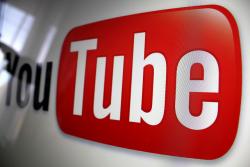Sky, Vodafone, HSBC And Other Major Brands Pull Google Ads Over Extremist Content Concerns

The British government, the BBC and others have withdrawn Google ad spending after their adverts were displayed alongside extremist content
Sky, Vodafone and three banks have joined a list of organisations including the British government, Marks & Spencer, the BBC, The Guardian and large advertising companies in pulling their adverts from Google’s YouTube over concerns the ads are being displayed alongside extremist content.
Sky, Vodafone, HSBC, Lloyds and Royal Bank of Scotland made the decision to suspend their ads, or review whether to do so, over the weekend over issues uncovered last week in a report by The Times, with the list of others to do so including McDonald’s, L’Oréal, Audi, Sainsbury’s, Channel 4 and Argos.
 Extremist content
Extremist content
Adverts for major brands and government departments were found to have appeared alongside extremist videos, including hate preachers and former Ku Klux Klan leader David Duke.
The ads were worth about £6 for every 1,000 viewers, adding up to about £250,000 for extremists, according to experts.
Marketing giant Havas, whose clients include O2 and Royal Mail, pulled its ads from YouTube last week, while Publicis said it is reviewing its relationship with Google and YouTube and WPP, the world’s largest advertising firm, has written to major clients asking them how they would like to respond.
Rob Norman, the chief digital officer of WPP’s media-buying division GroupM, told Sky News that Google should apologise to companies whose reputation was “compromised”.
Google executives were summoned to the Cabinet Office last week to give explanations, and have been told to return this week with a plan and timetable for resolving the issue.
 ‘Completely unacceptable’
‘Completely unacceptable’
The government said it had placed a “temporary restriction” on its YouTube advert spending while it awaited Google’s assurances that “government messages can be delivered in a safe and appropriate way”.
“Google is responsible for ensuring the high standards applied to government advertising are adhered to and that adverts do not appear alongside inappropriate content,” the government said in a statement.
Google said it has “strict guidelines” in place to determine where adverts should appear, but acknowledged it doesn’t “always get it right”.
“In the vast majority of cases, our policies work as intended, protecting users and advertisers from harmful or inappropriate content,” Google stated. “We accept that we don’t always get it right and that sometimes, ads appear where they should not.”
The company said it would make changes to its policies and brand controls for advertisers.
The Guardian said it had withdrawn all advertising from both Google and YouTube after a promotion for a membership scheme was inadvertently displayed next to extremist material.
David Pemsel, the media group’s chief executive, said the mistake was “completely unacceptable”.
Google’s European head, Matt Brittin, is due to address delegates to the Advertising Week Europe conference on Monday, while Mark Howe, head of Google’s agencies business in Europe, the Middle East and Africa, is also due to speak at the event.
 ‘Terrible reputation’
‘Terrible reputation’
Before the Commons Home Affairs Committee last week Twitter, Google and Facebook executives were told by chair Yvette Cooper that they had a “terrible reputation” amongst their own users for dealing with problems involving hate speech, given the billions of pounds they make in the UK.
Currently Google flags and then reviews questionable content, and deals with about 200,000 flags per day.
The company said it reviews 98 percent of the material flagged within 24 hours, but Cooper showed examples of violent hate speech that had been reported but had remained online more than a day later.
Social media companies have also been taken to task for their failure to stem the rapid spread of misinformation on their networks, something exploited on a large scale during last year’s US presidential elections.
Put your knowledge of artificial intelligence (AI) to the test. Try our quiz!